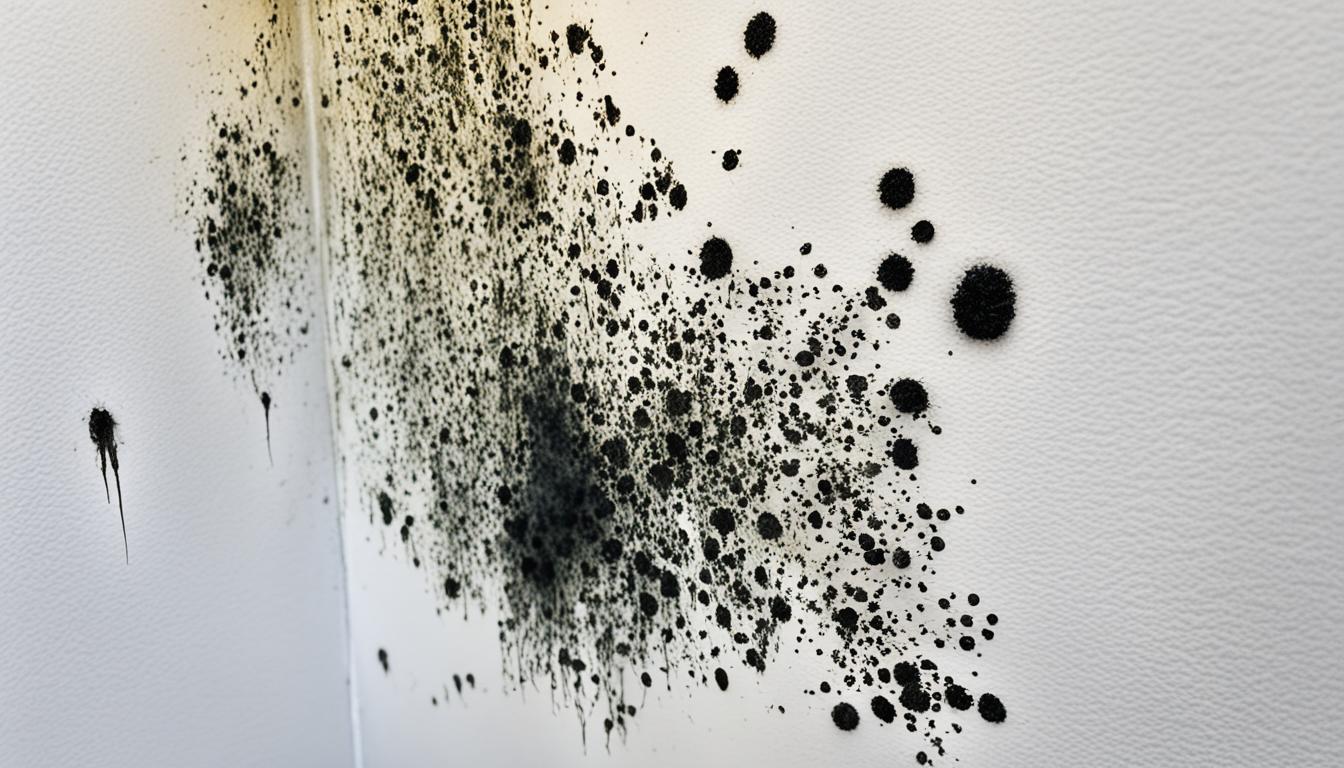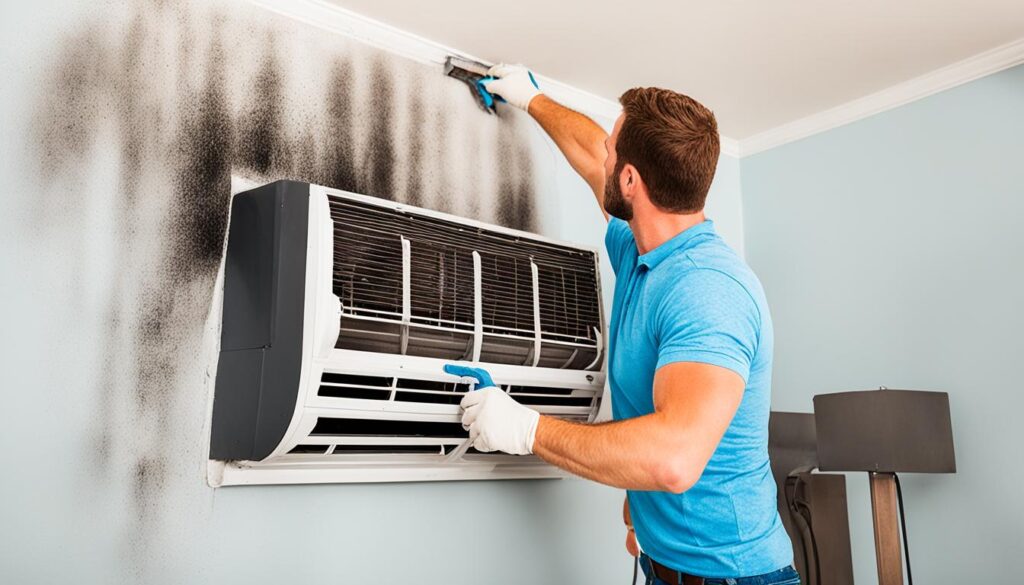
Impact of Black Mold on Health in Florida
Welcome to our article on the impact of black mold on health in Florida. As a state known for its tropical climate and high humidity, Florida homes are particularly susceptible to black mold growth, which can have serious implications for the well-being of residents. In this article, we will explore the health risks associated with black mold exposure, specifically in Florida, and provide practical tips on prevention.
Key Takeaways:
- Florida homes are prone to black mold growth due to the state’s tropical climate and high humidity.
- Exposure to black mold can lead to respiratory problems, allergic reactions, and other health issues.
- Prevention is key in minimizing the health risks associated with black mold in Florida homes.
- Proper ventilation, moisture control, regular inspections, and prompt action if black mold is discovered are crucial for prevention.
- By taking proactive measures, individuals and families in Florida can safeguard their health and well-being.
Symptoms of Black Mold Exposure in Florida
Black mold exposure can have detrimental effects on your health, and it is important to be aware of the symptoms that can arise from exposure. In Florida, where the humid climate provides optimal conditions for mold growth, it is especially crucial to recognize the signs of black mold exposure.
Exposure to black mold can lead to a variety of health issues, particularly affecting the respiratory system. Individuals in Florida may experience persistent coughing, wheezing, and difficulty breathing as a result of black mold exposure. Additionally, they may develop sinus congestion, throat irritation, and frequent headaches.
It is also important to note that black mold exposure can trigger allergic reactions in some individuals. Symptoms may include sneezing, itchy or watery eyes, skin rashes, and nasal congestion. If you or your loved ones experience these symptoms, it may be a sign of black mold exposure and should not be ignored.
Other potential symptoms of black mold exposure in Florida include:
- Fatigue
- Dizziness
- Memory problems or difficulty concentrating
- Mood swings or irritability
- Muscle and joint pain
- Unexplained weight loss
It is essential to seek medical attention if you suspect black mold exposure and are experiencing these symptoms, as they may indicate a more serious health concern.
To provide you with a better understanding of the symptoms of black mold exposure in Florida, refer to the table below:
| Symptoms | Description |
|---|---|
| Respiratory problems | Includes coughing, wheezing, and difficulty breathing |
| Allergic reactions | Ranging from sneezing, itchy eyes, and skin rashes |
| Headaches | Frequent or persistent headaches |
| Fatigue | Feeling tired or lethargic |
| Dizziness | Feeling lightheaded or unsteady |
| Memory problems | Difficulty remembering or concentrating |
| Muscle and joint pain | Experiencing discomfort in muscles or joints |
| Unexplained weight loss | Losing weight without any apparent cause |
Prevention is Key
“The best way to protect yourself from the symptoms of black mold exposure is through prevention. By controlling moisture levels and addressing any signs of mold growth promptly, you can ensure a safe and healthy environment for yourself and your family.”
Remember, identifying and addressing the root cause of mold growth, such as leaks or excessive humidity, is crucial for preventing black mold exposure. Regular inspections and proper ventilation are also key in maintaining a mold-free home in Florida.

Prevention Tips for Black Mold in Florida Homes
Preventing black mold growth in your Florida home is crucial for safeguarding the health of your family. By taking proactive measures, you can minimize the risks associated with black mold. Here are some practical prevention tips to consider:
- Ensure proper ventilation: Good airflow can help prevent moisture buildup, which is a prime condition for black mold growth. Use exhaust fans in kitchens, bathrooms, and other high-moisture areas, and keep windows open whenever possible to improve ventilation.
- Control moisture levels: Florida’s humid climate creates an ideal environment for mold growth. Use dehumidifiers or air conditioners to maintain humidity levels below 50% throughout your home. Fix any leaks promptly and ensure proper drainage around your property.
- Regularly inspect your home: Conduct routine checks for signs of water intrusion, such as leaks, condensation, or dampness. Pay attention to areas prone to moisture accumulation, such as basements, attics, and crawlspaces. Promptly address any issues to prevent water and mold damage.
- Take immediate action if black mold is discovered: If you spot black mold in your Florida home, it is essential to act quickly. Wear protective gear, such as gloves and a mask, to avoid direct exposure to mold spores. Consult a professional mold remediation specialist to safely remove the mold and address the underlying moisture issue.
By following these prevention tips, you can create an environment that is inhospitable to black mold growth. Protect your loved ones and maintain a healthy living space in your Florida home.

Conclusion
Black mold poses significant health risks for individuals living in Florida homes. The warm and humid climate in the state creates an ideal environment for black mold growth, which can lead to respiratory problems, allergic reactions, and other health issues.
To safeguard the well-being of individuals and families, it is crucial to be proactive in preventing black mold growth. This includes ensuring proper ventilation and moisture control in homes, conducting regular inspections for mold, and taking immediate action if black mold is discovered.
By implementing these prevention tips, Florida residents can minimize the health risks associated with black mold and create healthier living environments. Remember, prevention is key in protecting yourself and your loved ones from the harmful effects of black mold exposure.




